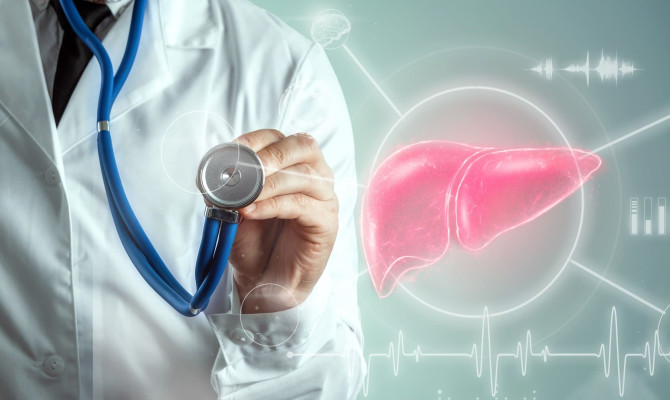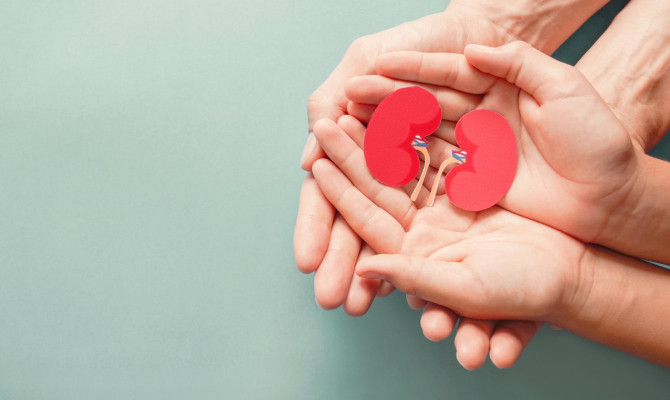Irritable bowel syndrome : Causes, Symptoms, and Treatment

- Irritable Bowel Syndrome
- 16 Aug 2023
Overview
What is Irritable bowel syndrome?
Recurrent abdominal pain and alterations in bowel movements (such as diarrhea, constipation, or both) are hallmarks of the syndrome known as irritable bowel syndrome (IBS). It is characterized by these symptoms with the absence of overt digestive system pathology.2Overview| Researched based study from Patient.info
While IBS might not be physically harmful, it can be very uncomfortable. The root of IBS is yet unknown. A wide spectrum of symptom severity is possible. Although there is currently no known cure for irritable bowel syndrome (IBS), its symptoms can often be greatly reduced with just a few adjustments to diet and routine.

Types
Types of irritable bowel syndrome
There are three subtypes of IBS that are characterized by distinct alterations or abnormalities in bowel habits. Knowing the subtype of IBS can be helpful information for your doctor. Certain medications improve symptoms for some forms of IBS but have the opposite effect on others. If you have bowel movements that don’t follow any of the typical patterns, your doctor may still diagnose IBS.4Types| Researched based study from Niddk.nih.gov
Constipation-related irritable bowel syndrome (IBS-C)
- On days when you have more than one irregular bowel movement, you may be suffering from IBS-C.
- The majority of your bowel movements are solid or lumpy, while only a small percentage are loose or liquid.
- If you have IBS with constipation, you probably have less frequent bowel motions and trouble passing stool.
- Stool output is often minimal, if not nonexistent.
Diarrhea with Irritable Bowel Syndrome (IBS-D)
- Having at least one irregular bowel movement each day is indicative of IBS-D.
- You have more stools that are loose or watery and fewer that are hard or lumpy than the average person.
Irritable Bowel Syndrome (IBS) with a combination of regular and irregular bowel movements (IBS-M)
- There is an imbalance in the consistency of your stools, with more than a quarter of them being loose or watery and the rest being firm or lumpy.
Causes
Causes of irritable bowel syndrome
The root of IBS is a medical mystery. Many factors may contribute to irritable bowel syndrome, according to experts. Individuals with IBS may have developed it for a variety of reasons.4Causes| Researched based study from Niddk.nih.gov
- IBS and other functional GI diseases are caused by difficulties in brain-gut connection. Some medical professionals believe that IBS symptoms are the result of a breakdown in the communication between the brain and the gut.
- Some IBS patients, for instance, may experience irregular bowel movements because food is either moving too slowly or too fast through the digestive tract.
- Pain is experienced by some persons with IBS even when the amount of gas or stool in the intestines is typical.
IBS patients tend to have a higher prevalence of certain issues. These issues, according to the experts, may lead to the pathogenesis of IBS. These issues are:4Causes| Researched based study from Niddk.nih.gov
- Psychiatric conditions, such as major depressive disorder, anxiety disorder, and somatic symptom disorder, have been linked to traumatic experiences in early life.
- Food intolerances or sensitivities, wherein eating particular foods brings on digestive symptoms small intestinal bacterial overgrowth, wherein the number or type of bacteria in the small intestine increases or changes
- Some people may be more predisposed to developing IBS due to genetics.
Symptoms
Symptoms of irritable bowel syndrome
Individuals with IBS may experience a wide spectrum of symptoms, from mild to severe. The symptoms are generally modest. When the symptoms of IBS are present for at least three months, on at least three days per month, a diagnosis of IBS can be made.1Symptoms| Researched based study from Medlineplus.gov
- Cramping and discomfort in the abdomen
- Gas Fullness
- Bloating
- Alteration in bowel routine, either IBS-D or IBS-C.
- In many cases, having a bowel movement will alleviate or completely eliminate the pain and other symptoms.
- When your bowel habits change, you may experience that your symptoms are getting worse.
- Irritable bowel syndrome patients may experience either chronic constipation or diarrhea, or both.
- Diarrhea is characterized by frequent, loose, watery feces and is a symptom of irritable bowel syndrome. It may be difficult to control the need to defecate when you feel it coming on.
- For a few weeks to a month, the symptoms may worsen before gradually subsiding. The opposite is true when symptoms are constantly present.
- Having IBS can cause you to lose your appetite. However, IBS does not include symptoms like blood in stools or unexplained weight loss.
Complications
Complications of irritable bowel syndrome
- Irritable bowel syndrome (IBS) is a painful condition, but it is comforting to know that it does not harm the colon or other digestive organs in the long run. Other physical health issues are not caused by IBS either.3Complications| Researched based study from Healthdirect.gov
- Managing Irritable Bowel Syndrome (IBS) can be stressful, despite the fact that it is usually a moderate condition that can be well-managed by dietary and other modifications to one’s lifestyle.
- Depression, anxiety, migraine, fibromyalgia, and chronic fatigue syndrome are just a few of the conditions that may be caused by chronic IBS.
When should I consult a doctor for irritable bowel syndrome
If you notice any symptoms, it’s critical that you be checked right away. Doctors may rule out other illnesses before settling on IBS as the cause of your symptoms:3Complications| Researched based study from Healthdirect.gov
- If your symptoms are severe or ongoing, or if you have passed blood in your stools.
- Unintentional or sudden weight loss may indicate an underlying health problem, such as a fever or severe diarrhea.
- While IBS isn’t likely to cause these symptoms, you should still take consultation from a doctor to prevent any serious disease.
Diagnosis
Diagnosis of Irritable bowel syndrome
IBS can be diagnosed after a thorough assessment of your symptoms, medical history, and physical exam. Tests may be recommended by doctors in order to rule out additional conditions..4Diagnosis| Researched based study from Niddk.nih.gov
Analyzing your present symptoms
- If your doctor suspects that you have IBS, he or she will interview you about your symptoms and detect a certain pattern. Having abdominal pain in addition to two or more of the symptoms may lead your doctor to suspect IBS.
- Medications for IBD, colon cancer prevention, or celiac disease in families with a history of digestive disorders may suggest IBS.
- Your past history with other illnesses that are more prevalent among IBS patients may help in IBS diagnosis.
Physical Exam
- The purpose of a doctor’s physical exam is to examine the presence of flatulence.
- This is done by tapping your abdomen to check for tenderness or pain while listening to internal sounds with a stethoscope.
Tests for diagnosing IBS
Diagnostic diagnostics for irritable bowel syndrome are rarely used by doctors. Tests such as blood work, stool analysis, and other diagnostic procedures may be ordered by your doctor.
In-Vitro Diagnostic
- A blood sample will be drawn from you and sent off to the lab by a medical practitioner.
- In addition to IBS, doctors utilize blood testing to look for anemia, infections, and digestive illnesses.
Diagnosis by stool sample
- A container for collecting stool samples will be provided by your doctor. You will be told where to bring the kit to get tested.
- Feces tests are used to detect illnesses and infections, as well as blood in the feces.
- In addition to looking for blood, your doctor may examine your rectum while conducting a physical exam.
Other exams
The doctor may also conduct:
- Upper gastrointestinal endoscopy with a biopsy for celiac disease
- Hydrogen breath test for small intestinal bacterial overgrowth or issues in digesting certain carbohydrates, including lactose intolerance
- Colonoscopy for the detection of diseases and cancers of the digestive tract
Risk Factors
Risk factors for irritable bowel syndrome
Among the risk factors for irritable bowel syndrome are
- Having a close relative who suffers from IBS
- Experiencing stressful or traumatic situations, such as childhood abuse
- Suffering from a serious infection of the digestive tract .4Risk factors| Researched based study from Niddk.nih.gov
Treatment
Treatment of irritable bowel syndrome
The primary objective of treatment is symptomatic improvement.4Treatment| Researched based study from Niddk.nih.gov
Modifying one’s way of living can alleviate symptoms of IBS in some people
- Exercising regularly and getting a better night’s sleep, for instance, may help alleviate anxiety and gastrointestinal issues.
- Modifying one’s diet can be beneficial. However, due to the individual nature of IBS, it is impossible to recommend a specific diet for the condition.
The following adjustments could be useful:
- Caffeine, tea, and colas all have stimulating effects on the intestines and should be avoided.
- Reduced portion sizes
- Adding more fiber to your diet (which may help with constipation or diarrhea but exacerbate gas and bloating).
- Always consult with your healthcare provider before taking any over-the-counter drugs.
Some medications your health provider might prescribe are:
- Diarrhea caused by irritable bowel syndrome may be treated with loperamide
- Antibiotic rifaximin (Xifaxan) and the anti-inflammatory drug eluxadoline (Viberzi)
- Alosetron (Lotronex), which is prescribed only to female patients.
- Laxatives such as Lubiprostone (Amitiza), Linzess (linaclotide), and plecanatide
- Low proportions of tricyclic antidepressants and selective serotonin reuptake inhibitors covered peppermint oil capsules as antispasmodics.
Probiotics
- Probiotics are another option your doctor may suggest. Probiotics are characterised as “live microorganisms”, and are typically bacteria. Probiotics as a treatment for irritable bowel syndrome are still being investigated.
- It’s important to clear the use of probiotics and other treatments with your doctor first.
- If your doctor suggests probiotics, you should discuss the best dosage and duration of treatment with him or her.
Psychological treatments
- In order to alleviate your IBS symptoms, your doctor may suggest a series of therapies.
- Relaxation training, which can help you relax your muscles or reduce stress
- Cognitive behavioral therapy highlights facilitation of variation in thought and behavior trends to improve IBS symptoms.
- Gut-directed hypnotherapy, wherein a therapist employs hypnosis—a trance-like behavior of relaxation or concentration—to help you better your IBS symptoms.
Prevention

Prevention of irritable bowel syndrome
Although healthy lifestyle choices cannot prevent IBS, they can help alleviate its symptoms. 3Prevention| Researched based study from Healthdirect.gov
Modifying your diet in a cautious manner can help alleviate IBS symptoms.
- Increasing your intake of high-fiber foods is a suggestion that may help alleviate your discomfort.
- To avoid gas and bloating, raise your fiber intake gradually to the daily recommendation.
- Adults should aim for 25-30 grams of fiber per day as a minimum intake.
- One bowl of high-fiber cereal in the morning, at least five servings of fruit and vegetables spread throughout the day, three portions of dairy items (or a dairy-free or low-lactose substitute if you’re lactose sensitive), and six to eight glasses of water make up a healthy daily diet.
- If you’re having trouble with this, talk to your pharmacist about getting a soluble fiber supplement like psyllium.
- If you suffer from irritable bowel syndrome (IBS), cutting back on these foods and beverages may help.
Drinks with alcohol
- Aspartame, sorbitol, and mannitol are examples of artificial sweeteners used in food and drink.
- A nutritionist can help you figure out what foods set off your IBS and work with you to develop a plan to avoid them.
Prognosis
Prognosis of irritable bowel syndrome
- IBS is a chronic condition that can last a lifetime.
- The symptoms, however, tend to be intermittent.
- Having no symptoms at all, or only minor ones, over extended periods of time, is possible.
- When symptoms flare up, treatment can often help reduce their severity.
- The symptoms of irritable bowel syndrome (IBS) frequently lessen over time, and in some cases completely disappear.2Prognosis| Researched based study from Patient.info
Takeaway
Takeaway
Although irritable bowel syndrome (IBS) is not dangerous, it can be very uncomfortable because it affects the colon (large bowel). Irritable bowel syndrome is characterized by abdominal pain, bloating, and bowel irregularities such as chronic diarrhea or constipation, or alternating diarrhea and constipation. Your doctor will likely rule out more serious gastrointestinal problems before diagnosing IBS because the symptoms are similar. Many people find relief from their IBS symptoms by working with a nutritionist who specializes in the diagnosis and management of this condition.
Any feedback on this article?
 This Articles content was accurate
This Articles content was accurate Very Informative Article
Very Informative Article I have a question or a comment
I have a question or a comment
 This article contains inaccurate content
This article contains inaccurate content This article was not helpful
This article was not helpful I have a question or a comment
I have a question or a comment
We appreciate your helpful feedback!
Checkout our social pages
References
-
Medline Plus
Irritable bowel syndrome | Symptoms
-
Patient Info
Irritable bowel syndrome | Overview | Prognosis
-
Healthdirect
Irritable bowel syndrome (IBS) | Complications | Prevention
-
National Institute of Diabetes and Digestive and Kidney Diseases
Definition & Facts for Irritable Bowel Syndrome | Type | Causes | Diagnosis | Treatment




































